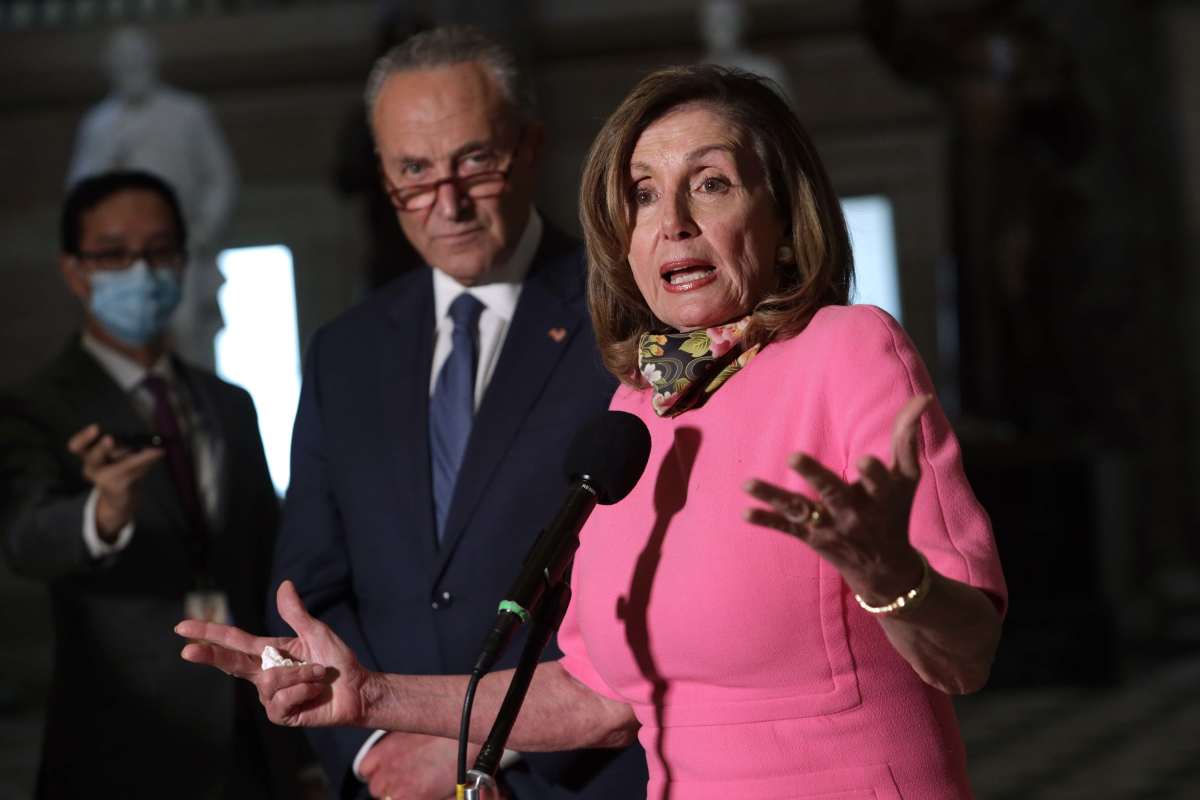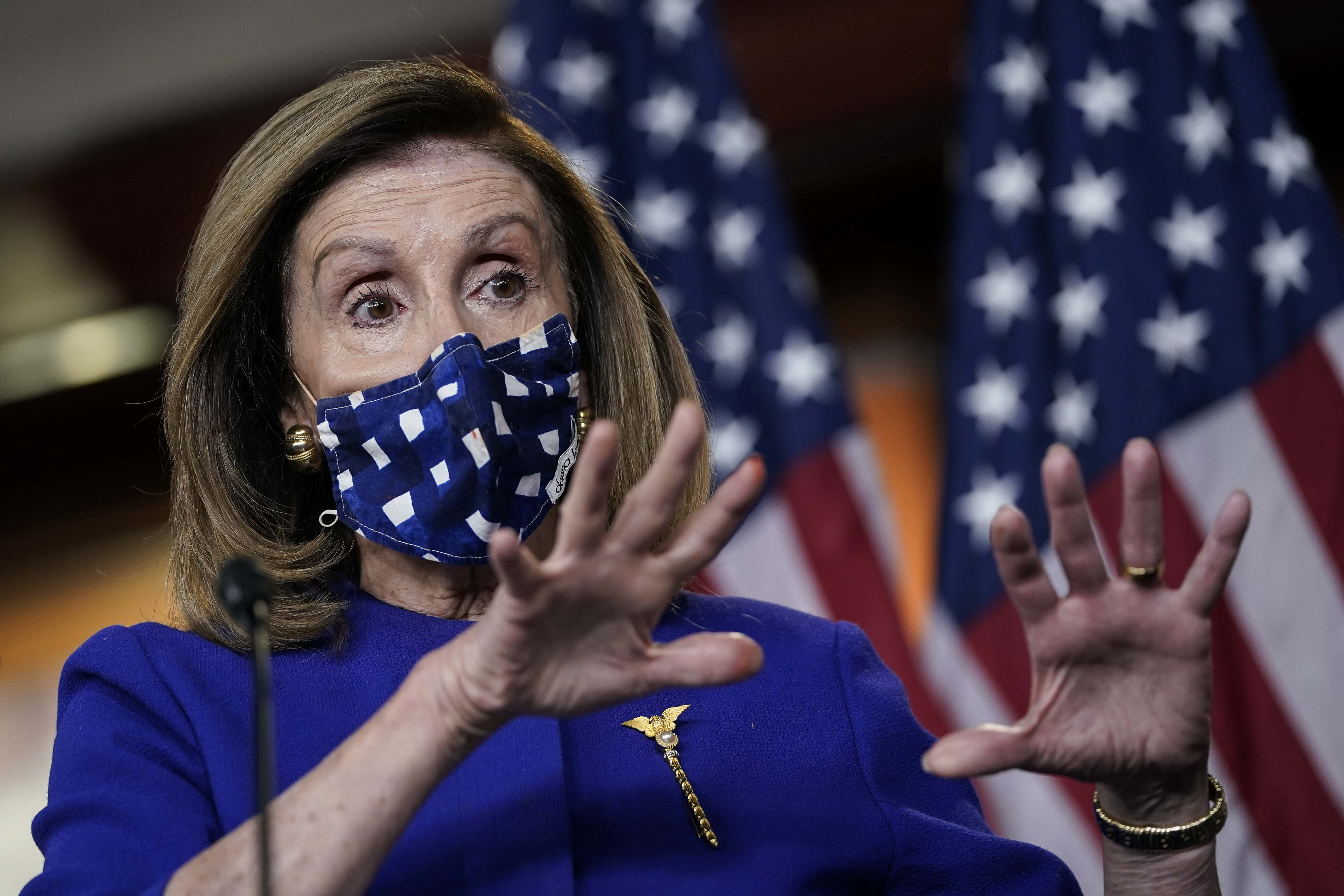Nancy Pelosi called 'power-mongering witch' for claiming she has authority to unseat Congress members

As House Speaker Nancy Pelosi (D-California) downplayed concerns from centrist Democrats who warned party leaders potentially overturning the election result of a closely contested House seat in Iowa, a controversial statement from the Speaker has come under fire.
During the briefing, Pelosi said, "If I wanted to be unfair, I wouldn't have seated the Republican from Iowa, because that was my right on the opening day." Pelosi then said, "I would have just said, 'You're not seated.' And that would have been my right as Speaker to do."
READ MORE
The comments came after it was revealed that the House Administration Committee is considering a challenge from Democrat Rita Hart, who is contesting the results in Iowa's 2nd District after the state certified that Republican Rep Marianette Miller-Meeks won by just six votes.

Pelosi then said, "But we didn't want to do that. We just said, 'Let's just go through the process." "Many members were saying, 'Don't seat the person.' You're naming a few who are saying let's move on. But I'm saying then, people said, 'Why should we seat somebody to have votes for all this time when their election is being contested?' And we said no, we will seat the member and then we'll go through the normal process," she said.
Speaker Pelosi says it is her “right as Speaker” to seat or unseat any member of Congress she wants even if the election is certified
— Daily Caller (@DailyCaller) March 25, 2021
pic.twitter.com/b6yyJMf1EA
Pelosi's comments came under fire on social media where many criticized the Speaker for what she said. One user wrote, "You're a power mongering witch! Please resign now. @SpeakerPelosi #HatefulDemocrat You have the right to overturn what voters voted for? What? @OANN." Another tweeted, "Someone tell this old hag that she has NO RIGHTS except those given to her by the People, for God's sake.." A user opined, "We would condemn this if it happened in a foreign country." Another asked, "Look who is undermining our elections and our democracy. Where is the moral outrage?"
You're a power mongering witch! Please resign now. @SpeakerPelosi #HatefulDemocrat You have the right to overturn what voters voted for? What? @OANN https://t.co/Utbttha8Uc
— John West 🇺🇲♠️🇺🇲 (@John_WyCo_West) March 26, 2021
Someone tell this old hag that she has NO RIGHTS except those given to her by the People, for God's sake.. https://t.co/mIxmmiVWWK
— SweetBabyJane Freedom! RecallNewsom (@KathrynJane805) March 26, 2021
We would condemn this if it happened in a foreign country. https://t.co/JHtinz0J9E
— Richard Grenell (@RichardGrenell) March 26, 2021
Look who is undermining our elections and our democracy. Where is the moral outrage? https://t.co/xyBtCPv8mw
— Mercedes Schlapp (@mercedesschlapp) March 26, 2021

But does Pelosi as the House Speaker have the right to unseat an elected member of Congress?
This comes down to a 1969 ruling by the US Supreme Court that held that the Qualifications of Members Clause of Article I of the US Constitution is an exclusive list of qualifications of members of the House of Representatives, which may exclude a duly-elected member for only those reasons enumerated in that clause.
The primary holding of the ruling, according to Justia, is that an individual who meets the constitutional requirements for being a member of the House of Representatives may not be denied a seat there upon being properly elected.
As Mondaq states, the Supreme Court ruled that the House's Constitutional authority to judge the qualifications of its own members was post facto and could only be exercised via expulsion after a 2/3rd affirmative vote. The House and Senate have no discretion when deciding whether to seat a candidate who has been duly elected under state law but may take steps to expel that member after they have been sworn-in. That is, the Court decided that the constitutional rights of the voters and the states take precedence over the rights of Congress until the candidate is sworn-in as a member.










